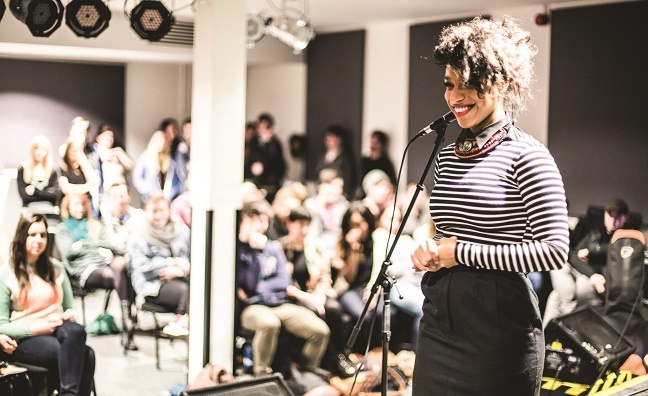Leading voices from the music education sector have called for a “unified approach” to tackling problems of diversity in the business.
Representatives from BIMM, The BRIT School, Mixtape Madness, ICMP, the Musicians’ Union, DIME Music Group, CC Young and Tileyard Education have spoken to Music Week as part of a special report in this week’s issue.
Stuart Worden, BRIT School principal voiced “great concern” that “music education’s commitment to diversity is under threat by the reduction of access routes to it in state schools”.
“We are proud we have a strong number of females working for record labels and companies,” he added. “We are equally proud we have a significant percentage of BAME students who go on to work in the industry. The BRIT School has produced the leading female artists of the last 20 years and will continue to champion voices from all backgrounds.”
Harry Leckstein, managing director of Tileyard Education noted an increase in the number of young women studying technical audio production and music business.
“That’s great, but the numbers need to keep rising,” he said. “Our industry should boast no boundaries to excellence – we are all creative, all technical and all entrepreneurs regardless.”
We have to change the historical models of the inudstry
Ken Foreman, The Musicians' Union
David Barnard, education official at the Musicians’ Union said the education sector’s role in resolving the issues of diversity and equality is “essential”.
“This requires a unified approach, guided and governed through a nationwide policy framework and inspection regime,” he said.
Ken Foreman at the Institute of Contemporary Music Performance in London said the business has a responsibility to “challenge some of the historical modes and ways of working of the industry”.
Foreman said the ICMP has “a very diverse student and staff community” and is “continuing to make sure that we better represent the diversity of society”.
BIMM’s head of careers and employability welcomes the industry scrutiny. “It’s good news that these issues are resonating so strongly,” she said. “Recruiters are keenly aware of the importance of diversity and equality and a number of organisations are making it a priority to develop programmes with support these issues.
We must do what we can to spread the message
Mel Thornton, BIMM
Thornton stressed that supporting diversity should start with recruitment. “All education providers have a responsibility to do everything we can to ensure that we’re spreading the message about the music industry far and wide,” she said.
Kevin Nixon co-founded BIMM with Sarah Clayman in 2001, and the pair now head up DIME in Detroit. “Part of the lack of equilibrium is that, despite a lot of talk and media noise, there are still virtually no legendary women producers, bass players, drummers, guitarists, major label chairs, promotors, and managers, which to us is a disgrace,” Nixon said.
Mixtape Madness COO Kwabena Oduro Ayim added: “People need to look at those who may come from less privileged background and ask themselves, ‘Is there anything stopping someone like that from accessing what I have on offer?’ If the answer is yes something must be changed until everyone is able to have equal access.”
Subscribers can read Music Week’s education special report in full here.
To subscribe and never miss a music biz story, click here.
(Pictured above: Lianne La Havas at a BIMM event)









